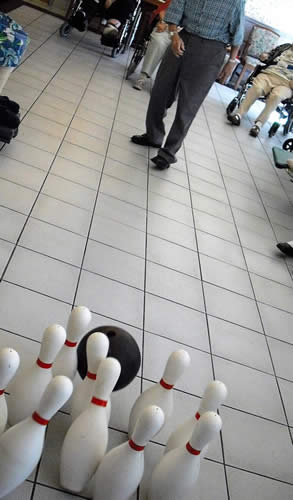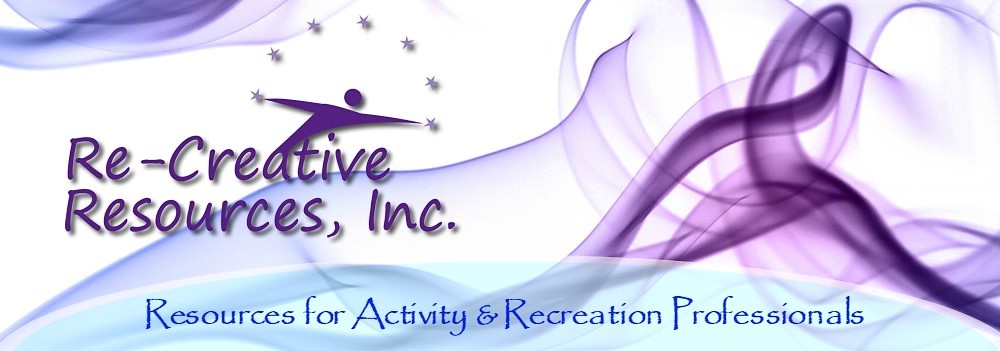Activity professionals offer residents the opportunity to increase or maintain current level of physical abilities through a variety of exercise programs, physical games and sports. Some examples of exercise activities may include: music and movement, Tai Chi, walking club, stretching, dancing, wheelchair aerobics, rhythm band, and so on. Visit the excercise page by Fit Xpress for more information.
Physical games and sports add a little friendly competition and teambuilding to the mix and may include adapted versions of: basketball, horseshoes, bowling, volleyball, ball games of all kinds, toss and target toss games, shuffleboard, kickball, table tennis, golf, and many more.
For some friendly competition and a fundraising opportuity, host a Walk/Wheel-A-thon.
 Some of the many benefits of sports, physical games and exercise programs include: Some of the many benefits of sports, physical games and exercise programs include:
- Fine and gross motor skills
- Endurance, strength & flexibility
- Mobility
- Range of motion
- Hand/eye coordination
- ADL skills and body awareness
- Sleep patterns
- Skin integrity
- Appetite
- Decrease use of pain medications
- Less stress and increased joy
- Friendly competition and teambuilding
- Socialization and interpersonal skills
Tips for Adapting Physical Games, Sports and Exercise
- Utilize adaptive equipment such as a bowling ball pusher or ramp, lightweight equipment, large-gripped handles, etc.)
- Slow down the action (use a balloon or slow-motion ball rather than a regular ball)
- Use larger or smaller playing objects
- A bounce pass may be easier to catch than a direct throw
- Use contrasting colors for games
- Move target closer or further away
- During exercise, give clues- right, left, straight ahead, up, down
- Provide hand over hand assistance
- Provide passive range of motion
- Have residents become scorekeepers or cheerleaders
- Change the rules (i.e.) give 3 chances for bowling instead of 2
- Have a sports competition (bowling, basketball, any toss game, etc. amongst those who either prefer to stay in their rooms or have to for medical reasons)
|







